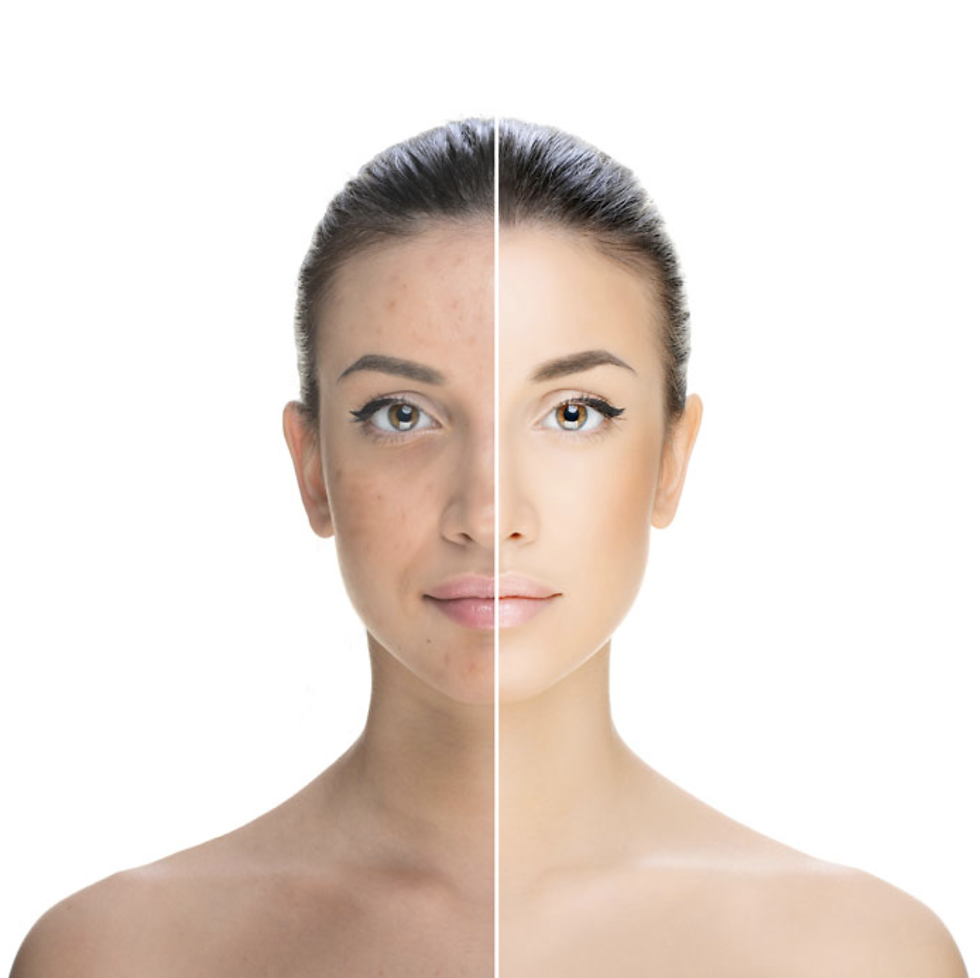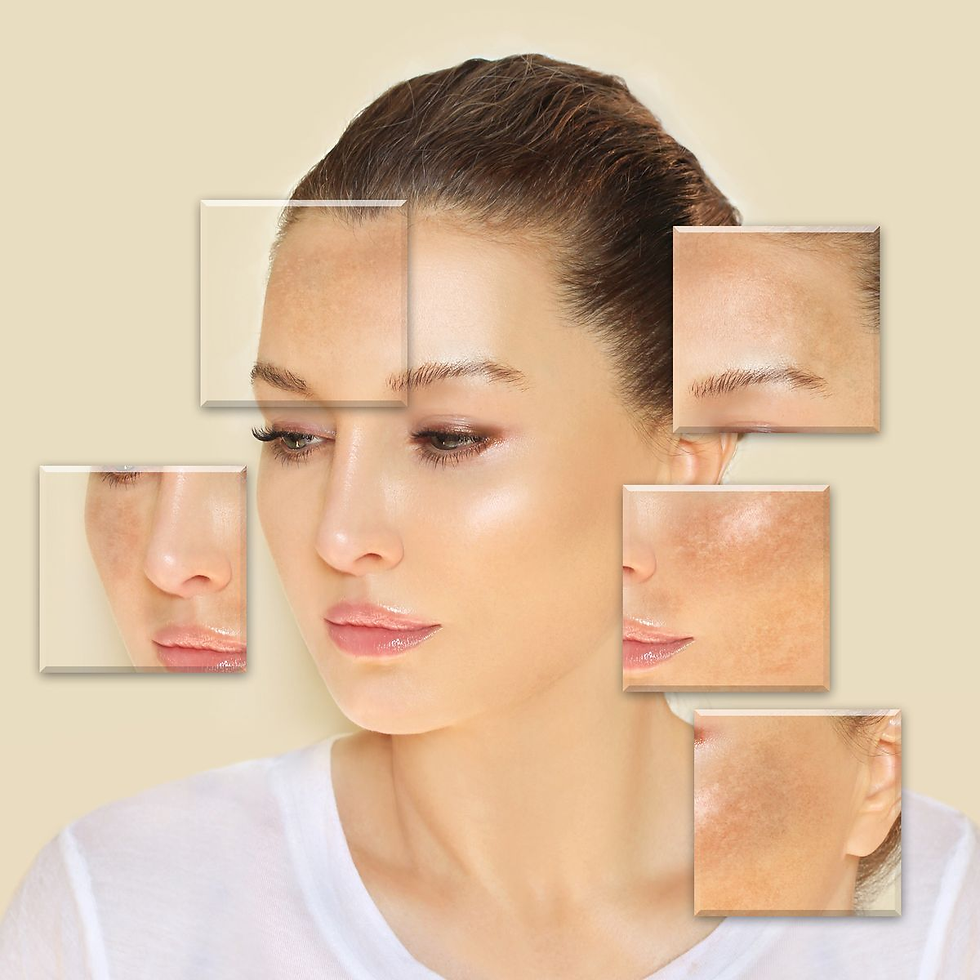Demystifying Hyperpigmentation: Causes, Treatments, and When to Seek Professional Help
- Dr. Vohra's Skin Clinic

- Oct 26, 2023
- 3 min read
Updated: Apr 12, 2024
Hyperpigmentation, a common skin concern, can affect people of all skin types and colors. Understanding what hyperpigmentation is, its treatment options, and when to consult a dermatologist is essential for anyone looking to achieve clear and radiant skin. In this article, we'll delve into the world of hyperpigmentation to demystify its causes and explore effective solutions.

What Is Hyperpigmentation?
Hyperpigmentation is a condition characterized by the darkening of certain areas of the skin. It occurs when there is an overproduction of melanin, the pigment responsible for our skin, hair, and eye color. This condition often results from various factors, including:
Sun Exposure: Prolonged sun exposure can lead to sunspots or solar lentigines, a form of hyperpigmentation.
Acne: Post-inflammatory hyperpigmentation (PIH) is a common aftermath of acne. It leaves behind dark marks where blemishes once resided.
Hormonal Changes: Melasma, often referred to as the "mask of pregnancy," is another form of hyperpigmentation triggered by hormonal fluctuations during pregnancy or due to birth control.
Skin Injuries: Scars from wounds, burns, or surgical procedures can also cause hyperpigmentation.
Treatment Options for Hyperpigmentation
Hyperpigmentation is a pesky problem, but there are various treatment options available to address it:
Topical Treatments: Over-the-counter and prescription topical treatments containing ingredients like hydroquinone, retinoids, and kojic acid can help reduce the appearance of hyperpigmentation.
Chemical Peels: Dermatologists may recommend chemical peels, which use acid solutions to remove the top layer of skin and stimulate the growth of new, evenly pigmented skin.
Laser Therapy: Laser treatments, such as fractional laser therapy and intense pulsed light (IPL), can target melanin in the affected areas, helping to break it down and encourage the growth of clear, unblemished skin.
Microdermabrasion: This non-invasive procedure exfoliates the top layer of skin, gradually reducing hyperpigmentation over several sessions.
Cryotherapy: Cryotherapy uses extreme cold to destroy excess melanin and remove dark spots.
When to Visit a Dermatologist
While some mild cases of hyperpigmentation can be managed with over-the-counter treatments, more severe or persistent cases require professional guidance. Here are some signs that it's time to consult a dermatologist:
No Improvement: If over-the-counter treatments have not yielded significant results after several weeks or months, it's time to see a dermatologist.
Multiple Skin Concerns: If you have several skin issues in addition to hyperpigmentation, such as severe acne or eczema, a dermatologist can provide a comprehensive treatment plan.
New or Changing Spots: If you notice new spots or changes in existing hyperpigmented areas, it's crucial to get them evaluated to rule out any serious skin conditions.
Persistent Redness or Swelling: Persistent redness, swelling, or discomfort associated with hyperpigmented areas may indicate an underlying problem that requires professional attention.
Skin Type and Color: Individuals with darker skin tones may be more prone to hyperpigmentation complications. In such cases, consulting a dermatologist is highly recommended.

Conclusion
Hyperpigmentation is a common skin issue that can affect anyone. Understanding the causes and available treatment options is essential to effectively manage and reduce its appearance. Remember that while mild cases can be addressed with over-the-counter solutions, visiting a dermatologist is crucial for more severe or persistent hyperpigmentation concerns. Seek professional guidance to achieve the clear, even complexion you desire.
If you're struggling with hyperpigmentation and need expert guidance, don't hesitate to schedule a consultation with a dermatologist. Achieving beautiful, radiant skin is within your reach, and a dermatologist can help you develop a tailored plan to address your specific needs. Say goodbye to hyperpigmentation and hello to a more confident you!
Contact us today to learn more about hyperpigementation, secure your appointment.




Comments